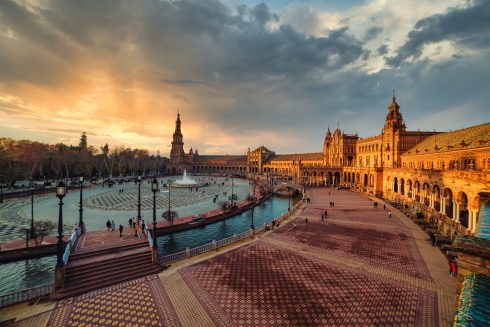SEVILLA city council has requested the removal of 715 tourist apartments, two thirds of which are in the historic centre and the Triana neighbourhood.
It is the first city to use new legislation that allows town halls to remove tourist lets which don’t meet regulations.
The move follows from an ongoing dispute in the town hall over how to tackle the problem of tourist apartments in the city.
Led by the Partido Popular (PP), the city council is pushing to only limit the number of tourist apartments, arguing that tourism is vital to the city’s economy.

The opposition parties led by the socialist PSOE, however, are calling for a complete stop on new licences.
The PSOE has proposed to slash the maximum number of tourist apartments from 10% of the housing stock to a mere 2.5%.
The lack of consensus reflects growing concerns about the impact of tourist apartments on the city’s character and liveability, with residents fear rising rents and a loss of the city’s traditional atmosphere.
Meanwhile, Malaga’s hotel sector has launched a campaign to woo back its key customers after fears that recent bouts of turismofobia have scared them away.
The city was rocked by protests last Saturday as demonstrators gathered in Plaza de la Merced, where they unfurled a banner reading Malaga para vivir, no sobrevivir (Malaga for living, not surviving).
La Merced, where the Picasso Museum is located, is one of the worst affected neighbourhoods in Malaga, with 68.91% of the housing being used for tourist apartments.

The Malaga Association of Hoteliers (Mahos) has vehemently tried to deny the link between tourism and unaffordable housing in the province.
“Linking the housing problem in Málaga with tourism is a mistake,” said Javier Frutos, the president of Mahos.
“To demonise our main industry for electoral or ideological gains is irresponsible,” he continued, suggesting there could be political motivations behind the recent anti-tourism protests.
“This partisan campaign against tourism has meant that the protest on Saturday has been used for purposes other than those for which it was supposed to be,” the hoteliers’ association believes.
As with the mayor of Malaga, Francisco de la Torre, Mahos pointed instead to last year’s housing law as the main culprit for the shocking housing situation.
“One of the main long-standing problems is the Urban Leasing Law due to the legal insecurity that the owners themselves have,” Frutos argued after Mahos’ general assembly, where this manifesto against tourismophobia was unanimously approved.
Click here to read more Sevilla News from The Olive Press.








